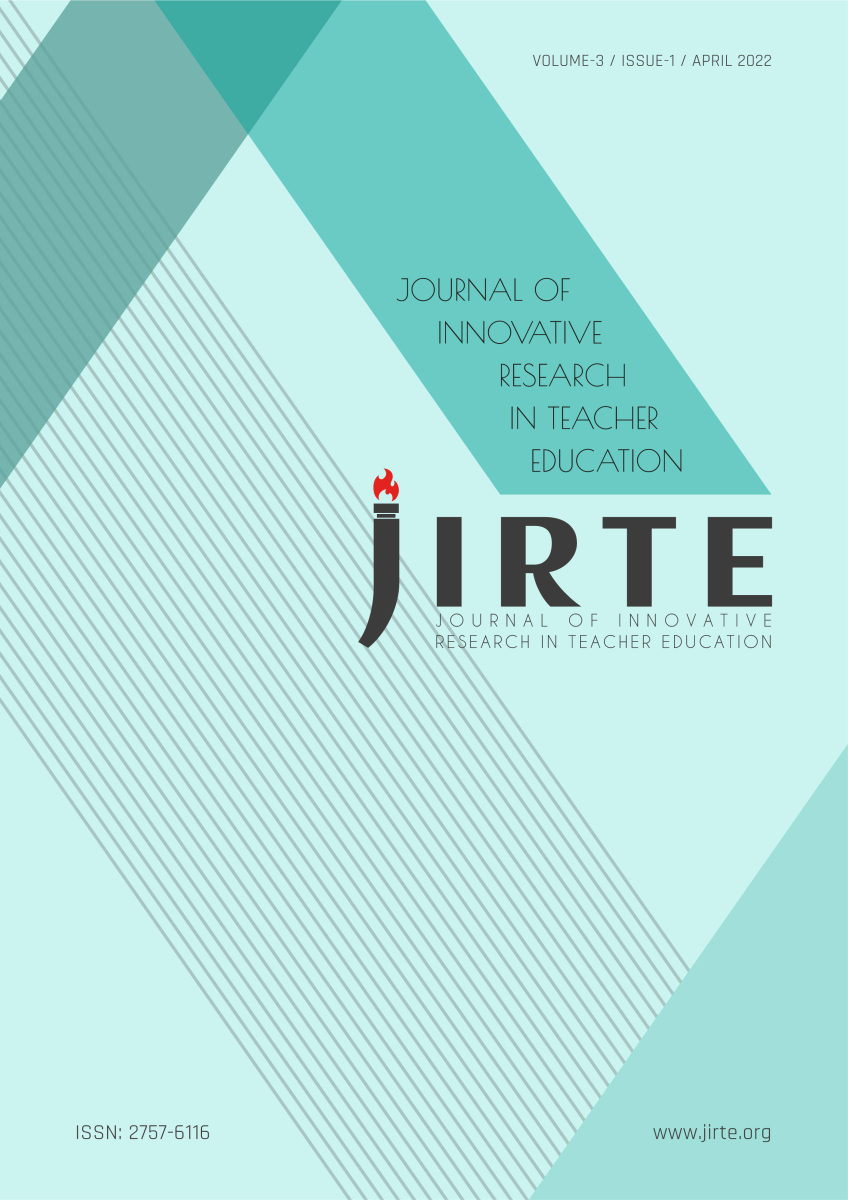Research article | Open Access
Journal of Innovative Research in Teacher Education 2020, Vol. 1(1) 55-59
The Road that Paved the Way for Recent Research Methods in ELT
pp. 55 - 59 | DOI: https://doi.org/10.29329/jirte.2020.321.4
Publish Date: December 23, 2020 | Single/Total View: 172/902 | Single/Total Download: 262/2.339
Abstract
A wide variety of approaches have been adapted for the purpose of conducting research related to English Language Teaching. In the first quarter of the 20th century, reflective thought was introduced by John Dewey. He highlighted the role of reflection through interpretation of the experience, naming the problem coming into view during experience, offering explanations for the problem, producing hypotheses and experimenting them. Although these phases seem familiar in today's instructional context, it is truly compelling that reflective thought has become prominent and characteristics of effective instruction almost recently. This may be due to discrepancy between teachers and researchers or several researchers' disregarding the important variables that directly influenced the results they obtained. Currently many prefer to proceed on the basis of their own determinations of the particular context of the research setting, essentially acknowledging the teacher's active role in determining the most appropriate methodologies to use, contextual and affective factors. Thus, much post method era research eschews adherence to established methods and their principles and is at liberty to tailor approaches to contextual requirements. This paper intends to provide a brief overview of ELT research shift towards a more context specific and reflective stage.
Keywords: English language teaching, post-method era, critical research methods
APA 7th edition
Balbay, S., & Dogan, C. (2020). The Road that Paved the Way for Recent Research Methods in ELT . Journal of Innovative Research in Teacher Education, 1(1), 55-59. https://doi.org/10.29329/jirte.2020.321.4
Harvard
Balbay, S. and Dogan, C. (2020). The Road that Paved the Way for Recent Research Methods in ELT . Journal of Innovative Research in Teacher Education, 1(1), pp. 55-59.
Chicago 16th edition
Balbay, Seher and Cemile Dogan (2020). "The Road that Paved the Way for Recent Research Methods in ELT ". Journal of Innovative Research in Teacher Education 1 (1):55-59. https://doi.org/10.29329/jirte.2020.321.4
Ahmadi, A. & Maftoon, P. (2015). Rethinking the language learner in the post-modern era the question of identity. Procedia-Social and Behavioural Sciences, 192, 267-274.
Akdikmen, R. (1999). A modern English course for Turks. Grade 6. Student’s book. Istanbul: Ders Kitapları Anonim Şirketi.
Akdikmen, R. (2002). A modern English course for Turks. Grade 7. Student’s book. Istanbul: Ders Kitapları Anonim Şirketi.
Baker, W. (2015). Culture and complexity through English as a lingua franca: Rethinking competences and pedagogy in ELT. Journal of English as a Lingua Franca, 1, 9-30.
Byram, M. (1989). Cultural studies in foreign language education. Clevedon: Multilingual Matters.
Canagarajah, A. S. (1999). Resisting linguistic imperialism in English teaching. Oxford: Oxford University Press.
Chambers, J. (1992). Empiricist research on teaching. Dordrecht. Neterlands: Kluwer Academic.
Coleman, H. (1996). Autonomy and ideology in the English language classroom. H. Coleman (Ed.). Society and the language classroom. (pp. 1-16). Cambridge University Press, Cambridge.
Ellis, R. (2009). Second language acquisition, teacher education and language pedagogy. Language Teaching, 43(2), 182-201.
Elliott, J. (1995). Action research for educational change. Buckingham, England: Open University Press.
Ersöz, A., Çakır, A., Özkan, N., Cephe, P.T., Demir, G., & Peker, B. G. (2007). Time for English grade 5: Student’s
book. Ankara: MEB.
Ersöz, A., Çakır, A., Özkan, N., Cephe, P.T., Demir, G., & Peker, B. G. (2008). Time for English grade 4: Student’s book. Ankara: MEB.
Finaran, K. R. (2015). Current trends in ELT and affordances of the inverted CLIL. Studies in English Language Teaching. (4), 326-338.
Freeman, D. (1998). Understanding teacher research. Boston: Heinle & Heinle.
Freire, P. (1972). Pedagogy of the oppressed. New York: Herder and Herder.
İlyas, H. P. (2017). Historical perspective: The development of critical thinking in Indonesian ELT. Journal of ELT Research, 2(2), 89-102.
İlyas, P. (2018). The quest for critical thinking framework in ELT. A Journal of Culture, English Language, Teaching and Literature, 18(2), 310-332.
Jeyaraj, J. & Harland, T. (2016) Teaching with critical pedagogy in ELT: The problems of indoctrination and risk. Pedogogy, Culture & Society, 24(4), 587-598.
Kim J. (2004) Coping with cultural obstacles to speaking English in the Korean secondary school context. Asian EFL Journal, 6(3), 1-17.
Kim, M. K. (2015). Students’ and teacher’s reflections on project-oriented learning: A critical pedagogy for Korean ELT. English Teaching, 70(3), 73-98.
Kumaravadivelu, B. (2001). Toward a Post-method pedagogy. TESOL Journal, 35(4), 537-560.
Kumaravadivelu, B. (2006). TESOL methods: Changing tracks, challenging trends. TESOL Quarterly, 40(1), 59-81.
Lantolf, J. & Thorne, S. (2007). Sociocultural theory and second language Learning. In B. van Patten, J. Williams (Eds.) Theories in second language acquisition (pp. 201-224). Lawrence Erlbaum, NJ.
Larsen-Freeman, D. (1997). Chaos/complexity science and second language acquisition. Applied linguistics, 18(2), 141-165.
Maftoon, P. & Sarem, S. (2012). A critical look at the presentation, practice, production (PPP) approach: Challenges and promises for ELT. Broad Research in Artificial and Neuroscience, 3(4), 31-36.
Newby, David. (2012). Insights into the European portfolio for student teachers of languages (EPOSTL). Cambridge: Cambridge Scholars Publishing.
Luis Fernando, R. G. (2015). The cultural content in EFL textbooks and what teachers need to do about it. Issues in Teachers’ Professional Development. 17(2), 167-187.
Spolsky, B. & Hult, M. F. (2008). The handbook of educational linguistics. Victoria: Blackwell Publishing.
Stern, H. H. (2003). Fundamental concepts of language teaching. Oxford: Oxford University Press.
van Manen, M. (1991). The tact of teaching: The meaning of pedagogical thoughtfulness. Albany: State University of New York Press.
Walsh, S. & Mann, S. (2015). Doing reflective practice: A data-led way forward. ELT Journal, 69(4), 351-362.
Wang, J. (2011). Culture differences and English teaching. English Language Teaching, 4(2), 223-230.
Weedon, C. (1987). Feminist practice and poststructuralist theory. London: Blackwell.
Zeichner, K. (1996). Teachers as reflective practitioners and the democratization of school reform. (Eds.) Kenneth Zeichner- Susan Melnick & et al. Currents of Reform in Preservice Teacher Education. (pp. 199–214). New York: Teachers College Press.
